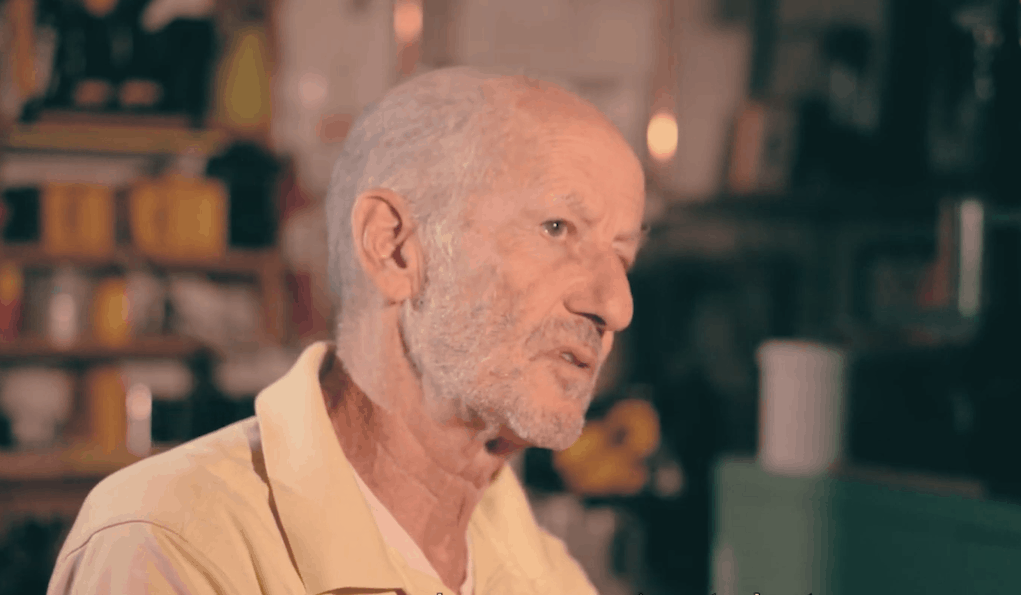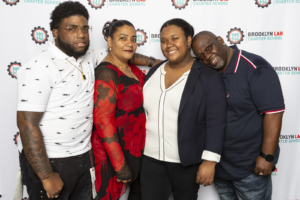Schools That Create a Public: Larry Rosenstock on Leadership

Twenty years ago, Larry Rosenstock found a warehouse on an abandoned San Diego naval base and turned it into one of the best schools in the world.
Inspired by Horace Mann, Francis Parker, and John Dewey’s work in 1918 to create a school for Black and Brown kids and kids in poverty, Rosenstock said it was “Everything we tried to do at High Tech High 100 years later.”
While creating High Tech High, he was committed to keeping the schools small and not letting the “school” label be attached to names. “When I was asked if I would do a High Tech High School, I told them yes if you take the word school off of it and that’s how it became High Tech High.” Rosenstock believes that it’s better to have small schools where everyone is known and known well and used that belief to create a network of 16 schools across San Diego County.
Reflecting on a life spent teaching students and teachers how to “just try,” 73-year-old Rosenstock spent time with fellows from Nevada Succeeds recently to share his experiences, advice, and lessons learned.
A New Way to Think About School Quality
A practitioner that has visited schools across the world, he often shared how his lessons from carpentry shape how he views education. “Everyone of us loves to make something that wasn’t there before. We don’t give kids enough opportunity to make something that wasn’t there before,” said Rosenstock.
To make sense of it all, Rosenstock said staff and the community should remember 11 Ways to Define School Quality:
- Committed to equity and delivering on it.
- The school works for all students who attend it.
- It does not mis-predict based on socioeconomic status, race, gender, or standardized test scores.
- Students doing work that has value to THEM.
- Students have voice and choice in their learning and are creating new knowledge.
- Rich learning environment for the adults who inhabit it.
- Intelligently allocates adult and student time, space, and resources.
- The adults are collaborating and improving through collective practice and by looking at the data and all kinds of information about what they are doing.
- The school’s purpose is not to serve the public but to CREATE a public. They make walls as permeable as possible with the world outside of school—not citadels apart from community.
- Innovation in the governance mechanism is an important, but in and of itself insufficient, condition.
- The schools are healthy and SAFE—it is a sacred public trust to be responsible for other people’s children.
Creating High Tech High, Rosenstock made space for kids to think differently, tell their stories, and appreciate their strengths instead of their weaknesses. From amazing art in the restrooms to jazz that plays non stop in the boys’ restroom, he believes in cultivating beauty in all things to the most minute detail. “I was born with part of an eye so I remember everything I see but not everything I hear. That’s why I learned this lesson that the weakness that kids have actually can turn out being their strengths because they’re paying so much more attention to it,” said Rosenstock.
Turning weaknesses into strengths didn’t apply just to kids, but showed up in his teachers as well. A talent magnet, Rosenstock was able to attract and cultivate teachers in ways others couldn’t. By creating the HTH Graduate School that serves as a talent development pipeline and by offering innovative teaching and learning, the network boasts extraordinary talent at all levels.
Employed on one-year contracts, some High Tech High teachers stay for 20-years and some only two—all have the opportunity to engage in really interesting work. “It shouldn’t be a commitment for your whole life. It’s ok if people come and go. We have a responsibility to other people’s children. We can’t guarantee a lifetime appointment for other people’s children,” said Rosenstock.
Living by the belief that job one of teaching people’s children is that teaching is an act of love, Rosenstock spreads that message to all leaders across the HTH network. He understands that teaching is a challenging career and that this year has been one of the most difficult for all educators. Teachers, especially, are dealing with layers of issues and a lot of new and complicated stuff every day.
Lessons in Leadership
Rosenstock pushes teachers and school leaders to understand the importance of school quality and strong leadership. He wants educators to keep going, no matter what. “My advice is ‘don’t stop.’ Just don’t stop. Whatever you’re trying to do with the school, about the school, for yourself in regards to the school and maybe no one saw it before, but you gotta do it, just don’t stop. Don’t be obnoxious, just keep going,” said Rosenstock.
Rosenstock offers school formation advice:
- When starting a school, ignore all the basic axioms
- Keep it simple
- Make the city the text
- Make it about adult learning
- Let students do most of the talking
- Ask students to use their heads and hands
- Tech as production more than consumption
- Keep tinkering
As the founder of one of the best school networks on the planet, Rosenstock’s legacy are two decades of graduates that are changing the world and thousands of visitors inspired by his admission to “Try it, just try it. Don’t make a big thing about it, just go try it.” He has changed American education for the better by inspiring others to take chances.
Rosenstock was the 2019 winner of the WISE Prize for his leadership in “project-based education—the idea that students can and must learn crucial academic skills through hands-on projects that integrate multiple disciplines, engage their interest, and have an authentic purpose.”
Rosenstock credits Nelson Mandela as an inspiration for his leadership, “I met Nelson Mandela. He said that he comes from a family of shepherds and we lead from the behind.” Like Mandela, Rosenstock gives people a lot of authority and lets them go with it and that has served him well.
For more on Larry Rosenstock, see:
- Larry Rosenstock: 2019 WISE Award-Winner
- Professional Learning that Transforms: Meet High Tech High Graduate School of Education
- Podcast: Making the City the Text at High Tech High
- Pondering Urban High School Development
- High Tech High: Student Engagement Leads to Deeper Learning
- Most Likely to Succeed: A Film About What School Could Be
- Schools For Wisdom: Personalized Project-Based Learning
- Generic vs Coherent Teacher Prep
Stay in-the-know with innovations in learning by signing up for the weekly Smart Update.








0 Comments
Leave a Comment
Your email address will not be published. All fields are required.